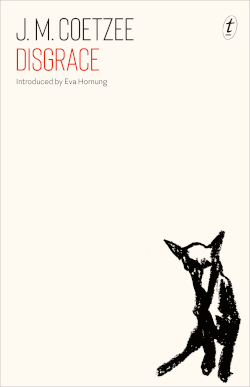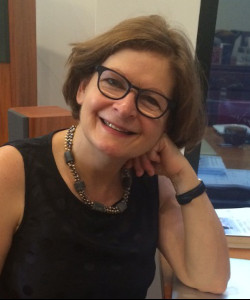J. M. Coetzee, Disgrace, 1999

J. M. Coetzee is regarded as one of the world’s most brilliant writers. Twice winner of the Booker Prize, Coetzee was awarded the Nobel Prize for Literature in 2004. Born in Cape Town, South Africa, Coetzee now lives in Adelaide, South Australia. Many say that the reclusive author left for Australia because of the controversy surrounding Disgrace (1999), a work which won the Booker Prize but which pleased very few in his native South Africa.
While the African National Congress denounced Disgrace as racist for depicting the gang rape of a white woman, white South Africans were shocked by what they saw as the novel’s bleak vision of their post-apartheid future. Today, in our deeply polarised times, the novel continues to provoke and disturb its readers, resonating eerily with the #MeToo and Black Lives Matter movements.
This masterclass will focus on sex, race, and power in Disgrace, looking in particular at the symmetry between the two rapes – one committed by David Lurie, a conservative white Professor of Romantic Literature, the other a gang rape inflicted on his daughter Lucy. Their relationship is a fraught one. Lucy is a lesbian who has turned her back on the city and on her father’s conventional aspirations for her. The gang rape she suffers, together with the absorption of her land into that of her black neighbour, are shocking enough but even more disturbing is her acceptance of all this as the price she must pay for her country’s unjust history.
Coetzee is on record as saying that South African literature is a ‘literature in bondage’ because a ‘deformed and stunted’ society can only ever produce a ‘deformed and stunted’ inner life. Is Disgrace itself an expression of this ‘bondage’, imprisoned by the distorting history of apartheid?

Professor Deirdre Coleman
Deirdre Coleman is Robert Wallace Chair of English and Redmond Barry Distinguished Professor at the University of Melbourne. Her research centres on eighteenth-century literature and cultural history, focusing in particular on colonialism, racial ideology, natural history, and the anti-slavery movement. She has published on these topics in leading journals in the fields of literature, history, and cultural studies.
Her monographs include Romantic Colonization and British Anti-Slavery (2005), an examination of the historically twinned settlements of Freetown in Sierra Leone, West Africa, and Botany Bay, NSW. In 2018 she published Henry Smeathman, the Flycatcher: Natural History, Slavery and Empire in the late Eighteenth Century (2018), a study of insect collecting in West Africa and the West Indies in the 1770s. More recently she has been involved in collaborative projects with staff at Museums Victoria and the Australian Museum on the collecting activities of several lepidopterists, including George Lyell (1866–1951) and Frederick Parkhurst Dodd (1861–1937).